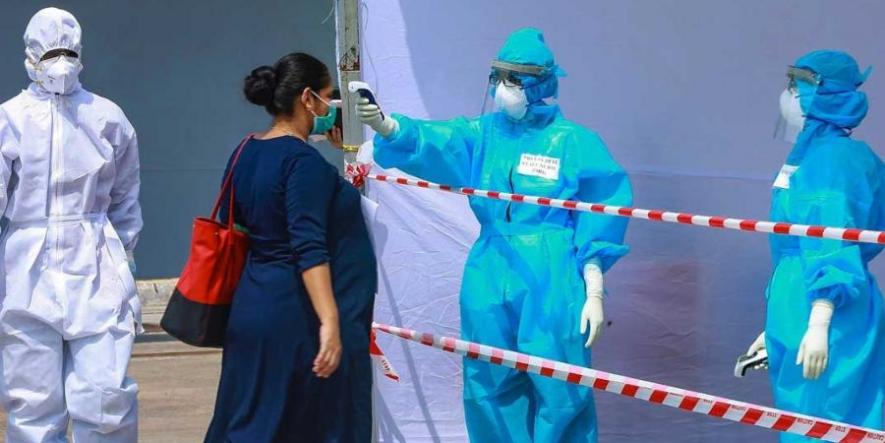Amid COVID-19, Monsoon-related Diseases Pose Challenges in Kerala

As the magnitude of COVID-19 increases across the country, Kerala- which had managed to flatten the curve- is now witnessing a sudden surge in number of positive cases with both non-resident Keralites and non-resident Indians returning to the state. But with the monsoon season around the corner, vector-borne diseases including dengue fever, leptospirosis, etc., pose a challenge, despite the government making arrangements.
According to the India Meteorological Department, the southwest monsoon has made an onset over Kerala on June 1 itself. The onset of monsoon over Kerala marks the commencement of the four-month rainy season in the country. The country receives 75% of the rainfall from June to September.
Now, fears are arising whether COVID-19 along with these communicable diseases makes a more deadly combination? Or do these communicable diseases aggravate the mortality risk of COVID-19 patients?
“Kerala has its share of fever deaths every year and in some years it is high. The problem we are likely to face is a higher risk of mortality for those contracting COVID-19 when already in the grip of a disease like dengue, which triggers hypo-tension and thrombocytopenia that result in drastic platelet drop,” said Dr Sajith John, assistant nodal officer of the COVID-19 control room annexe functioning out of the Indian Medical Association headquarters in Kochi. “That in turn could lead to a massive dip in immunity, which can prove fatal if combined with COVID-19. We all fear a severe rise in co-morbidity cases,” he added.
In 2017, 454 people had died of a variety of fevers in the state, with dengue claiming 165 lives, leptospirosis 80, H1N1 and ordinary fever 76. However, the number of people succumbing to these diseases came down significantly in coming years to 276 in 2018 and 234 in 2019. As opposed to 21,993 dengue cases in 2017, the number had come down to 4,651 in 2019, causing 14 deaths.
Dr Muhammad Asheel, Executive Director, Kerala Social Security Mission, said, “Dengue fever is cyclical and its resurgence happens every three years. Therefore, after hitting an all-time high in 2017, we are in for another bout of high incidence this year. But the virility of the infection is expected to be only one-sixth of that in 2017, but it will be three times as strong as last year.”
As per the latest medical report issued by the Directorate of Health Services (DHS) on its website on May 31, at least 2,660 fever cases were reported in the state on May 30 and 65,039 fever cases in the month of May alone.
The directorate said there were 12 confirmed cases of fengue on May 30 alone while 295 cases were reported in the month of May. In the month of May, at least seven confirmed cases of chikungunya were reported in the state. Similar was the case of leptospirosis with 83 confirmed cases being reported last month.
The state government anticipates a rise in fever cases in the monsoon season.
"As usual, there are chances of rise in fever cases during the monsoon season. Along with that, cases of dengue fever, chikungunya, and leptospirosis diseases are also likely to increase. The state government has to put up a new plan to tackle these diseases while battling the coronavirus pandemic," a senior Health department official told PTI.
The state government has proposed a revised fever protocol and included COVID-19 in the list of diseases having fever symptoms. As part of the revised fever protocol, Kerala Chief Minister Pinarayi Vijayan had earlier informed that those going to hospitals with complaint of fever will be segregated at the hospital entrance and would be seated separately.
"During this fight against the COVID-19 pandemic, the control of rainy season epidemics has become increasingly important. Special attention and care is needed in the case of three epidemics of dengue, leptospirosis and H1N1, which have fever as its main symptom," Vijayan had said.
Also Read:“I Don’t See a Brighter Future Beyond the Pandemic”
The chief minister had also asked people to take precautions against infections caused by mosquitoes during the rainy season. The pre-monsoon cleaning is almost over across the state.
“We know the situation is tricky. That is why we started a cleanliness drive much earlier this time. What we need is care, not panic. Since people are really conscious this time we are not expecting much load of the monsoon-related viral ailments,” said State health minister K K Shailaja.
The health minister also stressed that the ongoing pandemic fight will not affect the state’s preparedness to tackle other diseases.
(With Inputs from PTI)
Get the latest reports & analysis with people's perspective on Protests, movements & deep analytical videos, discussions of the current affairs in your Telegram app. Subscribe to NewsClick's Telegram channel & get Real-Time updates on stories, as they get published on our website.
























